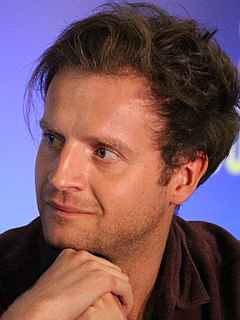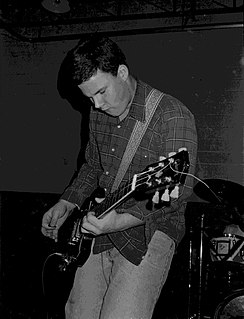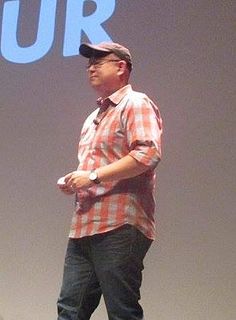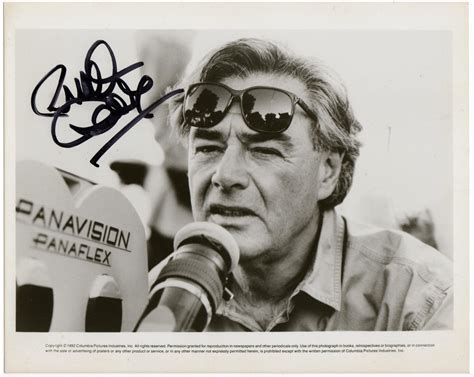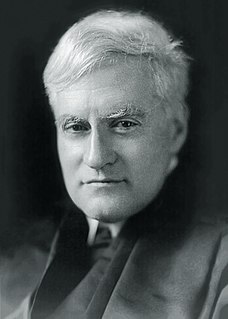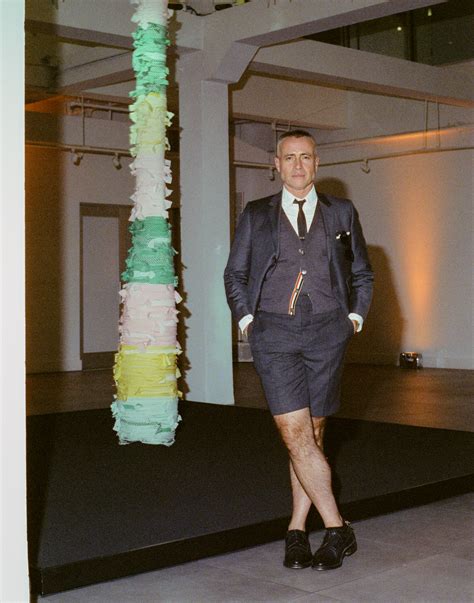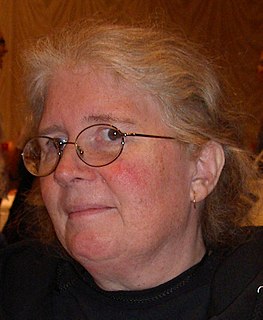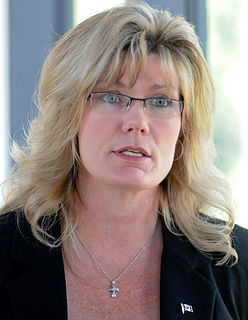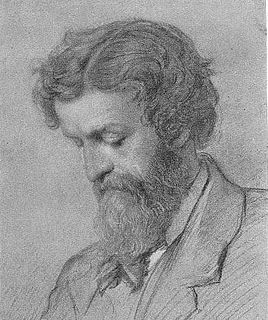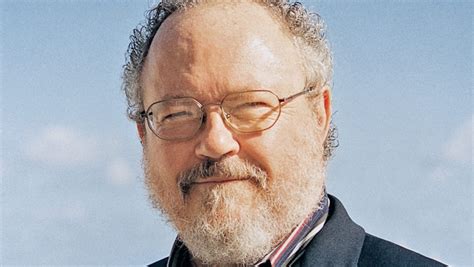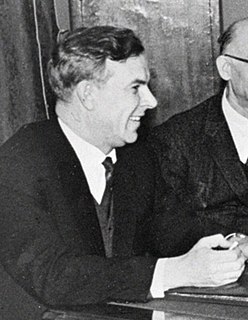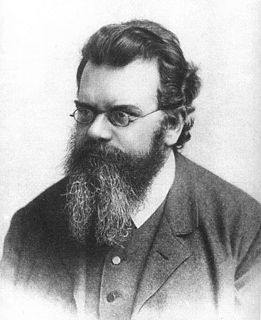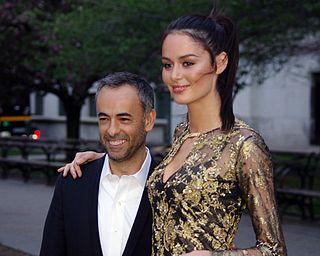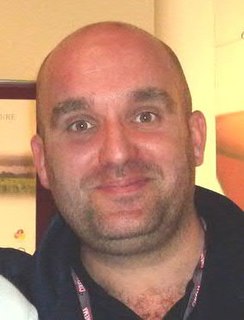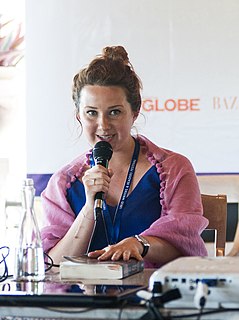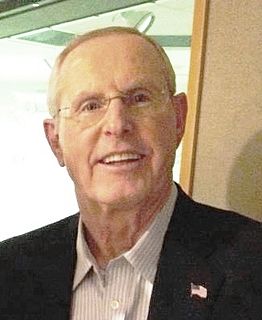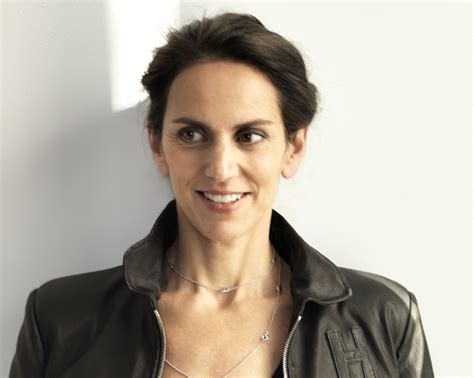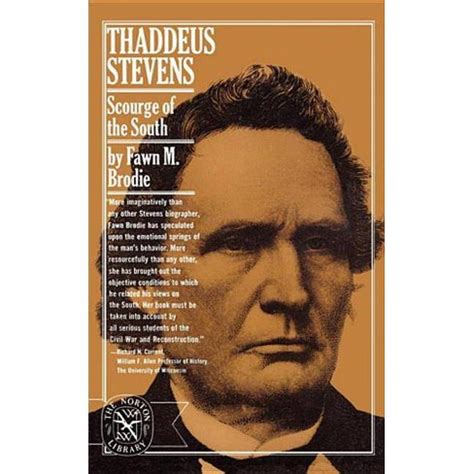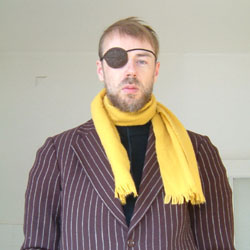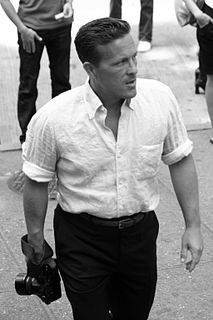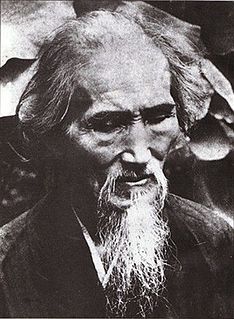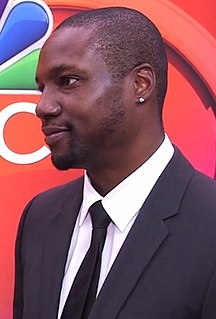Top 119 Archives Quotes & Sayings - Page 2
Explore popular Archives quotes.
Last updated on April 23, 2025.
When you are playing somebody who did exist, and there is good source material on them, whether it is a biography or archives or experts, you would be stupid not to delve into them. But there is a point in the process where you leave the books alone, and instead, you focus on the script and creating your version.
What drove me to do 'Dead Wake' was that after doing the most preliminary of reading and scoping out what kinds of materials might be available in archives and so forth, I realized that this book - the research, the writing - would present me with a rare opportunity to explore to a full extent the potential for suspense in a nonfiction work.
I went to the archives to see what Dumbo work there was, not for current film, but just for my love of animation. And I couldn't believe all the artwork the guys had done to find this universal empathy to Dumbo. There was one drawing where they used his ears as a sign: "Eat at Joes!" These guys were continually searching and digging to see what that is.
Please just look at those Indonesian cities: Jakarta, Surabaya, Medan... are there any other cities on earth, of that size, with such an absolute chronic lack of culture, and institutions that are supposed to make people think? Like theatres, archives, grand libraries, concert halls, art cinemas, progressive bookstores... There is nothing here.
As I search the archives of my memory I seem to discern six types or methods [of judicial writing] which divide themselves from one another with measurable distinctness. There is the type magisterial or imperative; the type laconic or sententious; the type conversational or homely; the type refined or artificial, smelling of the lamp, verging at times upon preciosity or euphuism; the demonstrative or persuasive; and finally the type tonsorial or agglutinative, so called from the shears and the pastepot which are its implements and emblem.
Since Brooks Brothers is a 189-year-old company, there are plenty of references and inspirations I can draw from their archives and catalogs. The wearer of Black Fleece may not be all that different from mine, in that I imagine that it would be someone who is a true individual, and independent thinker. This is for both men and women.
Among other things, drag queens are living testimony to the way women used to want to be, the way some people still want them to be, and the way some women still actually want to be. Drags are ambulatory archives of ideal moviestar womanhood. They perform a documentary service, usually consecrating their lives to keeping the glittering alternative alive and available for (not-too-close) inspection.
1925's 'The Lost World' is... really, everything a dinosaur movie should be. Like a dinosaur, this classic was once extinct too, existing as mere fragmentary footage and stills, but cinemaphile fossil-hunters have painstakingly excavated bits and pieces from obscure archives and assembled them into a nearly-complete animal.
Man's history has been graven on the rock of Egypt, stamped on the brick of Assyria, enshrined in the marble of the Parthenon-it rises before us a majestic presence in the piled up arches of the Coliseum-it lurks an unsuspected treasure amid the oblivious dust of archives and monasteries-it is embodied in all the looms of religions, of races, of families.
The American financial and military commitment really only kicks in with Korea. Not that Korea was the real game for the Americans; their real fear was that this was just the prelude to a second Korea in Germany. We now know from the Soviet archives that the last thing Stalin was going to do was start a war in Central Europe. The Americans didn't know that, and it was the fear that he might which transformed NATO from a sort of shell game into a real military alliance. That total commitment basically transformed the Marshal Plan into military aid.
Spaces devoted to Hannibal Lecter’s earliest years differ from the other archives in being incomplete. Some are static scenes, fragmentary, like painted attic shards held together by blank plaster. Other rooms hold sound and motion, great snakes wrestling and heaving in the dark and lit in flashes. Pleas and screaming fill some places on the grounds where Hannibal himself cannot go. But the corridors do not echo screaming, and there is music if you like.
I work at a record label where I have archives. These things [memorabilia] occurred and are important to somebody, and they're important to me. I find the record industry largely repellent. This music, the Teen Idles, all of that stuff, is important to me. I don't have lawyers, an agent or a manager. However I find the music industry largely repellent. I just make records because that's what I love to do. So I think that era, those pieces of media, I keep in my collection.
In my opinion, the continued popularity of these gross distortions of Iran in the U.S. seems to reveal more about certain aspects of America than about Iran. It seems that the popularity of these memoirs is largely due to the fact that, while claiming to do the opposite, they regularly reinforce the dominant representations of Iran in America by constructing an exotic, backward, and barbaric Iran principally based on U.S. archives.
My books serve as archives of thoughts and emotions, like a tonal history that captures how I felt at a certain time of my life. It's not very informational. You're not going to get comprehensive knowledge about the Han dynasty of China or about India's Emergency. But you might learn how one person felt about the Los Angeles Olympics.
I mean, these are really dedicated people [in Lovecraft Society] when it comes to [h.P.] Lovecraft. But in the top floor of the John Hay Library, you have all of Lovecraft's archives. And messing around in there, I noticed, I said, what are these paintings? And the librarian told me, "Well, those are Pickman's paintings." I said, "I thought this was like something he made up, like The Necronomicon, that kind of stuff." And he said no, that the guy actually existed.
Healing requires far more of us than just the participation of our intellectual and even our emotional resources. And it certainly demands that we do more than look backwards at the dead-end archives of our past. Healing is, by definition, taking a process of disintegration of life and transforming into a process of return to life.
I love being in the archives, traveling, sitting in dusty places and looking at books with brittle pages. I love reading biographies and researching, to make myself informed about whatever political or historical time I'm writing about. From there, a lot of the emotional truths about my characters emerge.
There was an intervention of the foreign states in the Russian Far East, Archangel of the West border of Russia. The foreign troops were participating in the attempts to stamp out the revolution. It's not just propaganda, because there are mounds of documents in the archives relating to these events and to the foreign espionage cases.
It must be splendid to command millions of people in great national ventures, to lead a hundred thousand to victory in battle. But it seems to me greater still to discover fundamental truths in a very modest room with very modest means - truths that will still be foundations of human knowledge when the memory of these battles is painstakingly preserved only in the archives of the historian.
The increasing legal pressure against archives has created anxieties among researchers, librarians, and journalists. They cite the need to protect sources who wish to make a record for posterity; procuring documents and interviews from those sources will be difficult if the fruits are only one subpoena away from disclosure.
I only do what I do. For me, it is a craft. It's got to be my own thing - otherwise, I would never be successful. I could easily go to the archives and pull 1987 or 1991 collection by Calvin Klein. But when you look in there, you realize that it was never about one piece. It was about the collections as bodies of work.
There were more people against going into Iraq than there were going into the Falklands... but the shame I carry as a British resident, was that it was a war handled in the media as if it were a World Cup summer. Like when England go into the World Cup, there are Union Jacks on the papers, and you can look at headlines from the time and it sounded just like that. Ultimately, I was privy to footage from ITN archives - that wasn't shown on television - of the people we were fighting, and it was shameful. It was bullying. It was really horrible. How could we have been proud of winning that?
I never really felt free to talk a lot about my family life because I don't want to sacrifice anybody else's privacy. If you look through the archives, you will see, for example, no pictures of my children. That is not because I don't love them. I think I've been a really good dad; at least, I try to be.
I've making videos since I was seventeen I was originally discollecting vintage hmmm... footages from different archives and setting moving pictures to classical music clips that meant a lot to me. Maybe there were places I have been where nice things have happened. I had a vision of making my life a work of art and I was looking for people who also felt that way.
Patriotic feelings will surely swell, prompting proud proclamations of the wisdom, foresight, and sense of justice shared by the Framers and reflected in a written document now yellowed with age . . . [F]or many Americans the bicentennial celebration will be little more than a blind pilgrimage to the shrine of the original document now stored in a vault in the National Archives. [Progressive]
President Yeltsin's instincts were decent: he encouraged the marketplace, the press flourished, and everything started to open - even the KGB archives. Yeltsin reburied Nicholas II. Free from Soviet anti-semitism, he surrounded himself with Jewish capitalists and advisers who returned to public life for the first time since the 1920s.
Cloud storage in data centers will utilize the latest developments in physical storage virtualization, deduplication and other methods to make the most effective use of physical storage assets. Software defined storage could allow a further level of abstraction and cost effectiveness. The vast bulk of content stored "in the cloud" will reside on large SATA interface HDDs with some on magnetic (mostly LTO) tape (particularly for "archives.")
In the heavens we discover [stars] by their light, and by their light alone ... the sole evidence of the existence of these distant worlds ... that each of them is built up of molecules of the same kinds we find on earth. A molecule of hydrogen, for example, whether in Sirius or in Arcturus, executes its vibrations in precisely the same time. Each molecule therefore throughout the universe bears impressed upon it the stamp of a metric system as distinctly as does the metre of the Archives at Paris, or the royal cubit of the Temple of Karnac.
The most challenging thing about this one was the vast amount of material we had at our disposal. We had a lot of media to go through - instead of fashion spreads, which informed The Eye Has To Travel, we had art, which was fantastic. I was spoiled by the access we had to these incredible archives and footage.
There is a need to employ public memory, critical theory, and other intellectual archives and resources to expose the crimes of those market-driven criminogenc regimes of power that now run the commanding institutions of society, with particular emphasis on how they have transformed the welfare state into a warfare state.
... over two hundred women, apparently at their own request, were sealed as wives to Joseph Smith after his death in special temple ceremonies. Moreover, a great many distinguished women in history, including several Catholic saints, were also sealed to Joseph Smith in Utah. I saw these astonishing lists in the Latter-day Saint Genealogical Archives in Salt Lake City in 1944.
Maybe it's the Calvinist guilt about capitalism or mercantilism. But, I like the idea of doing things that only exist for as long as they exist, which are not archives, which are not sold or prepared even. It's funny though, because a lot of my unreliable tours were inspired by the docents at the Japan Society, who are mostly these volunteers from the Upper East Side. They basically find positive messages in really nihilist, perverse videos. So they were my inspiration.
Silences enter the process of historical production at four crucial moments: the moment of fact creation (the making of sources); the moment of fact assembly (the making of archives); the moment of fact retrieval (the making of narratives); and the moment of retrospective significance (the making of history in the final instance).
I'm a big researcher. I love libraries and archives and I have a huge National Geographiccollection. I have a good amount of books and records, and I'm on the Internet. I think research yields a lot and can help you pull different discordant works that may not be harmonious. Through time and with patience and focus, you bring them all together.
I spent three years researching American Rose, research that included connecting with Gypsy's sister, the late actress June Havoc (I was the last person to interview her) and Gypsy's son, and also spending countless hours immersed in Gypsy's expansive archives at the New York Public Library. I became obsessed with figuring out the person behind the persona.
I don't at least for me I don't ever really look for trends. I'm looking for just what captures my attention at that time and rarely do I ever look back and try and put together trends or say this kind of trend is important. For me it's about the individual expression and if you go back and look through the archives you might find certain things become trends, but it's just not something that particularly interests me.
There were over 40,000 pages of FBI documents of which only about half are currently available to scholars and researchers. I think that this 40th anniversary of the assassination is a good opportunity for us to say that now is the time to declassify all FBI material on Malcolm X. There really is a need for us to challenge the US government for its refusal to open up its own archives 40 years after the death of Malcolm.
